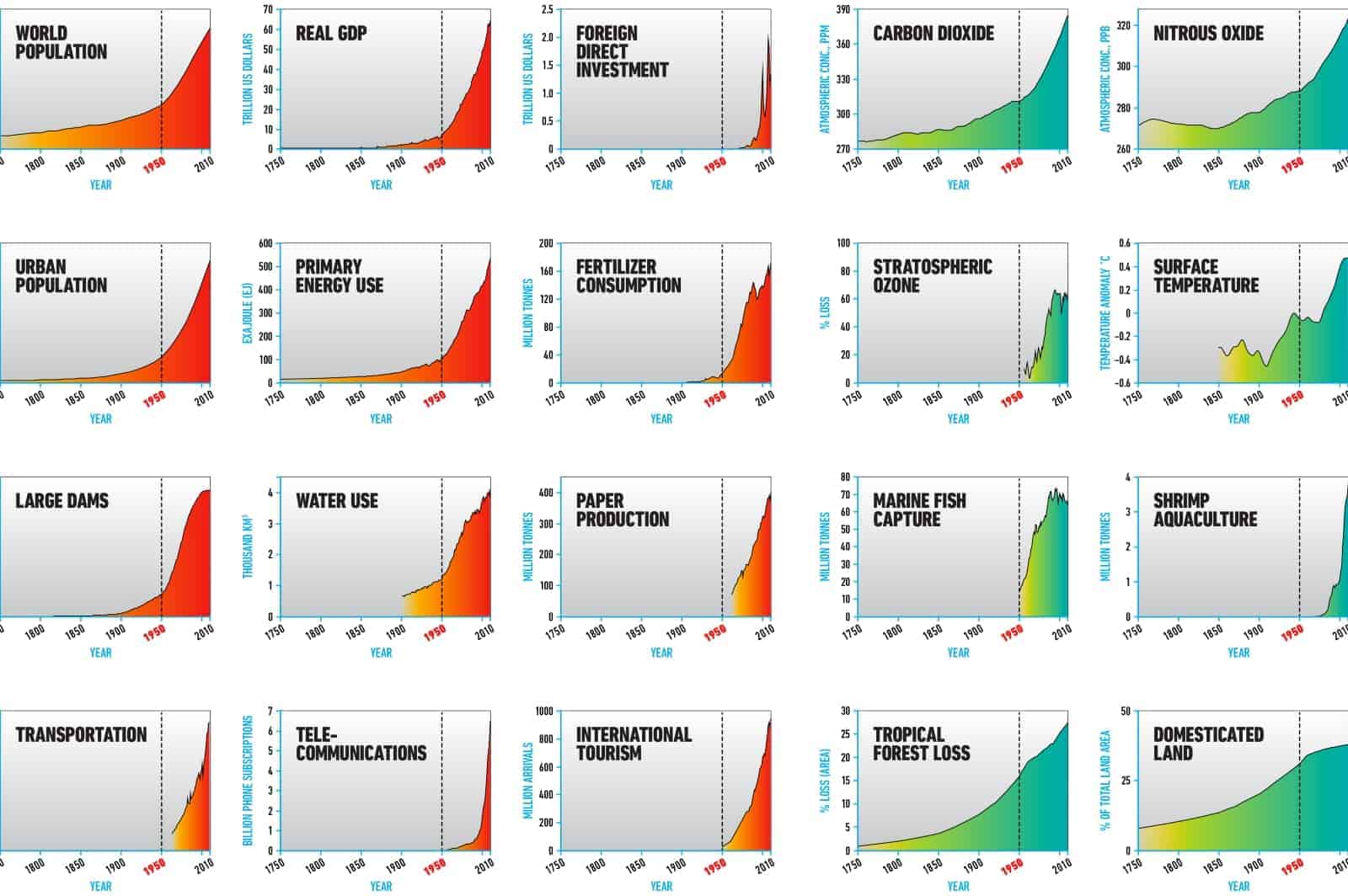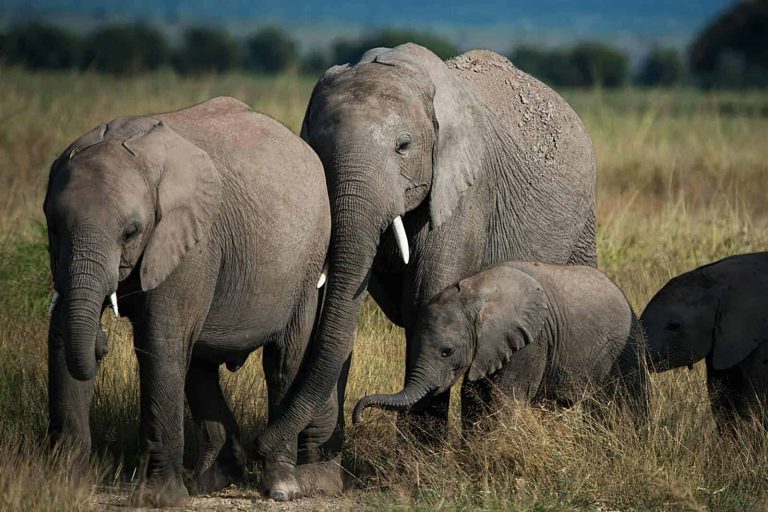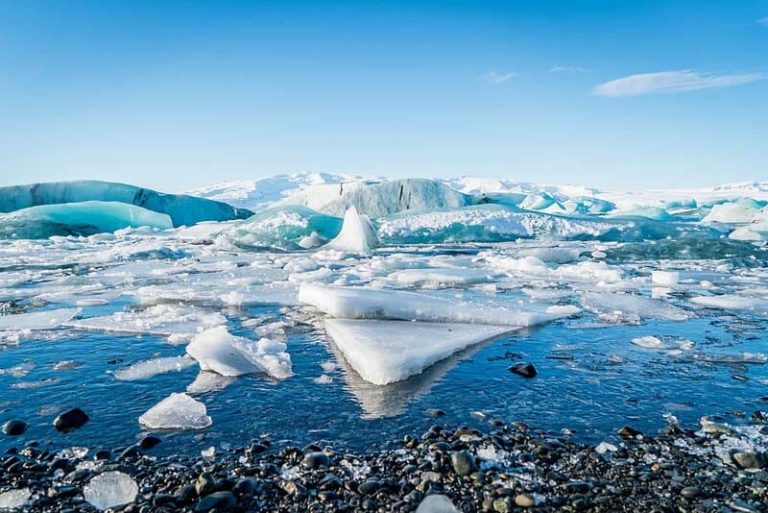The Anthropocene: Human pressures on the planet
Human pressures on the planet as a whole – the ‘Earth System’ – have now become so great that scientists have proposed that we have left the Holocene, the 11,700-year geologic epoch that has been humanity’s accommodating home, and have entered a new geologic epoch, the Anthropocene, characterised by extremely rapid changes to the climate system driven primarily by human emissions of greenhouse gases and growing degradation of the planet’s biosphere, driven by a range of direct and indirect human pressures.
Where is the Anthropocene headed? The current trajectory of the Earth System is a rapid exit from the Holocene, accelerating towards a much hotter climate system and a degraded, ill-functioning biosphere. Perhaps most concerning is a possible ‘fork in the road’ beyond which lies ‘Hothouse Earth’. The key element of this trajectory is a ‘tipping cascade’, in which a series of interlinked tipping points – the melting of polar ice, the conversion of forest biomes to grasslands or savannas, changes in ocean and atmospheric circulation – take control of the trajectory of the Earth System and move it to a much hotter, biodiversity-impoverished, but stable state.
Professor Will Steffen (Climate Council of Australia, Australian National University) argues that avoiding this possible tipping cascade requires fundamental changes to human societies. These changes include not only advances in technologies but also more fundamental changes in societal structures and core values.
Source: The Royal Society of Victoria









